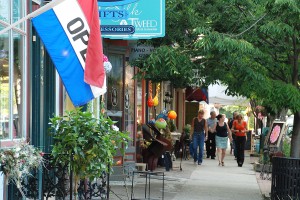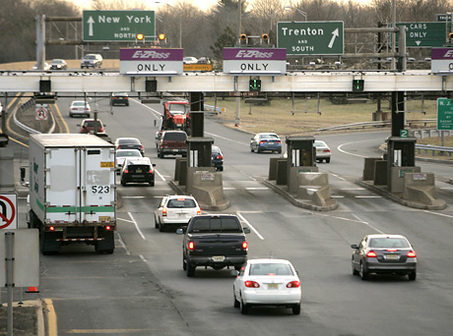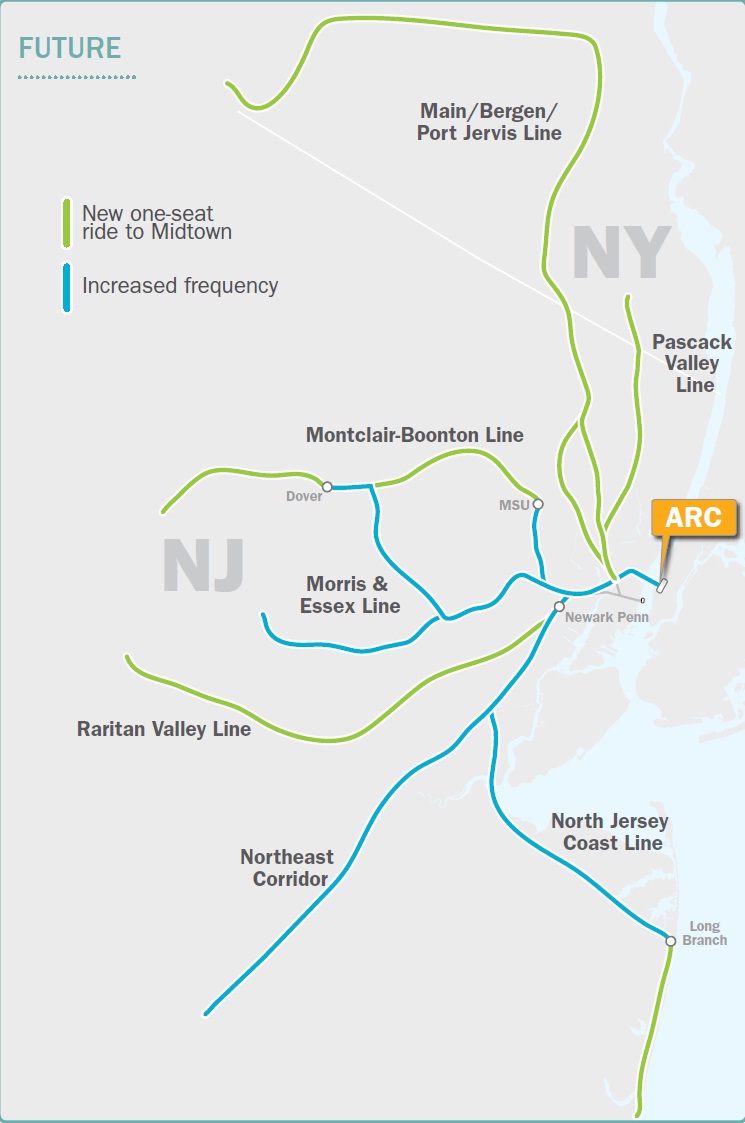New Jersey Future Blog
Forum Roundup: The Changing Downtown Retail Paradigm
March 20th, 2017 by Allison Kopicki
Downtowns across New Jersey are facing a unique set of challenges. While many towns are seeing a rise in the number of people who want to live in a walkable, mixed-use town center, they are also facing the challenges of keeping their downtowns vibrant and full of retail tenants when New Jerseyans increasingly do most of their shopping on laptops and not in stores.
The Changing Downtown Retail Paradigm, a panel discussion led by Debra Tantleff, the founding principal of TANTUM Real Estate, focused on the trends that were bringing more people downtown and the hindrances that developers, mayors, and others were encountering in trying to capitalize on these trends.
David L. Bieber, executive vice president of Newmark Associates, admitted he’s guilty of doing most of his own major purchasing online. But he’s optimistic about downtowns, with more people wanting to live in walkable areas, and said that downtowns with services that cannot be bought over the internet will flourish. “I don’t cook, I don’t cut my own hair, and I can’t give myself a massage,” he said. “Residents with disposable income who work from home and live over retail will come down at night and spend their money in restaurants and bars and salons.”
Patrick Schiavino, a developer, artist, musician, and founder of Asbury Underground, has created concerts and art happenings that have helped make Asbury Park a popular weekend destination, even when it’s not beach weather. His “Light of Day” weekend festival puts musicians in all kinds of venues across the city. It began with an initial audience draw of about 500, and has grown to showcase 100 musicians with more than 10,000 people coming to hear music in the dead of winter. That translates into increased foot traffic throughout the year. “Every weekend now, there’s not enough parking, and that’s a good problem for us to have,” he says.
Downtown Westfield’s executive director, Sherry Cronin, talked about the difficulty in attracting and keeping national retailers, because of their rules and stipulations about proximity to malls and other brand stores. She said that presents an opportunity for local retailers, but that they can no longer just come in the back door and stay in their stores. “They have to get out and know their neighbors and partner up and create events and happenings that will bring people in,” she said. She cited examples of downtown retailers working together, such as local liquor stores and BYOB restaurants, and florists that partnered with chocolate shops.
In order to create more vibrant, robust downtowns, the panelists all agreed on a number of points:
- Towns need to revisit and reassess outdated zoning. Today’s retail market is more service-oriented and focused on food and alcohol. Towns may have to be flexible with current regulations that are keeping out potential types of businesses that didn’t exist before, such as pet daycare providers. Temporary variances or waivers should be considered for pop-up shops, like a Halloween store or art gallery, for empty retail spaces.
- Cultural events can provide promotion, marketing and other long-term benefits, but towns need to work with a variety of retailers to get buy-in for one-day events that may not bring in foot traffic on that particular day, such as food truck nights or art festivals.
- Parking demand, both current and future, need to be considered. While car-sharing and public transportation may alleviate some parking demand in the future, too much difficulty in finding parking can be a turnoff for residents and for visitors. Parking ratios that no longer work for a town need to reassessed and payment-in-lieu-of-parking programs are a possibility to be considered.
- Liquor license laws that were created in the 1940s are largely outdated for today’s market. The high cost of single licenses can deter potential restaurateurs and therefore hold back economic growth.

















